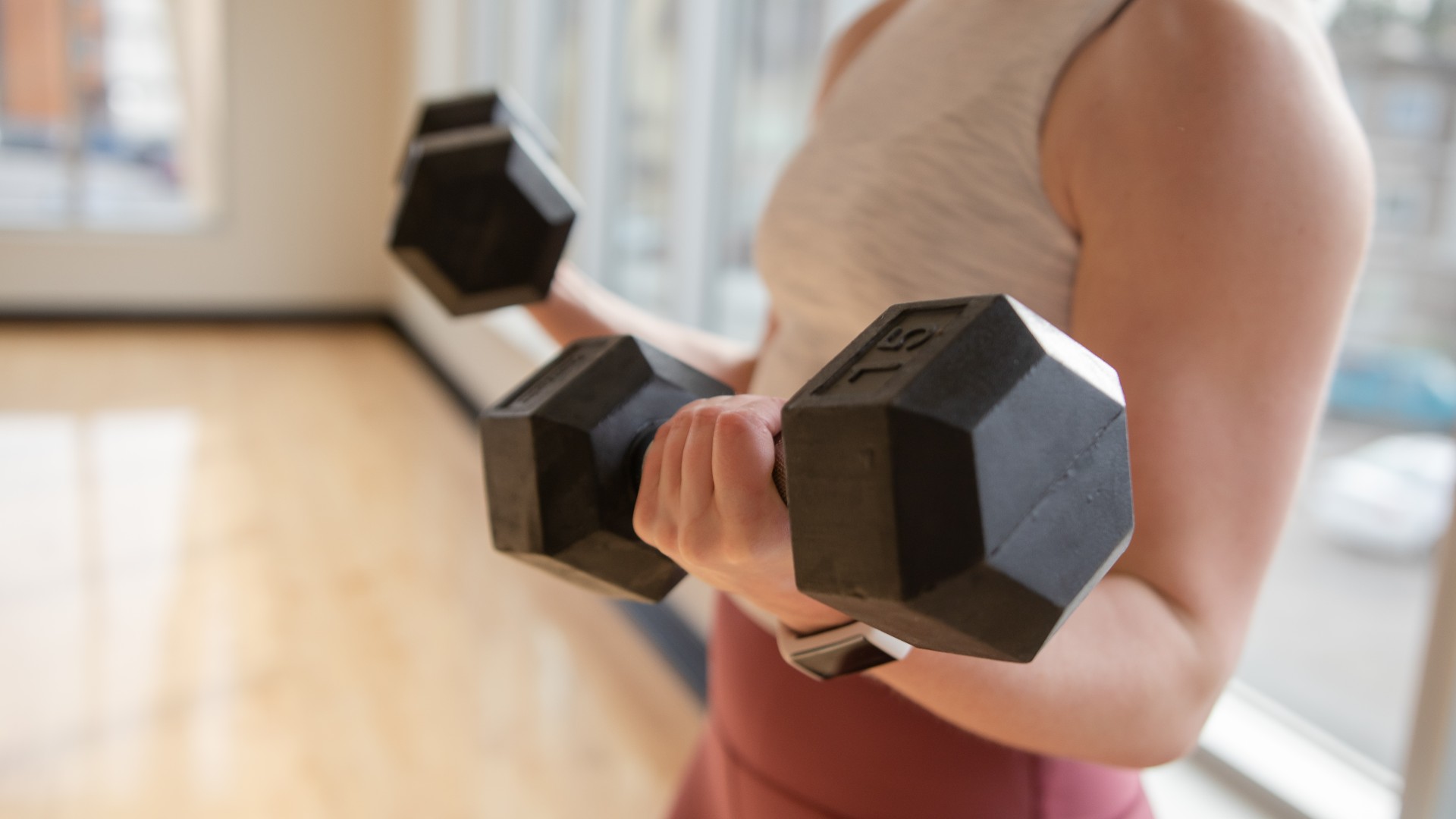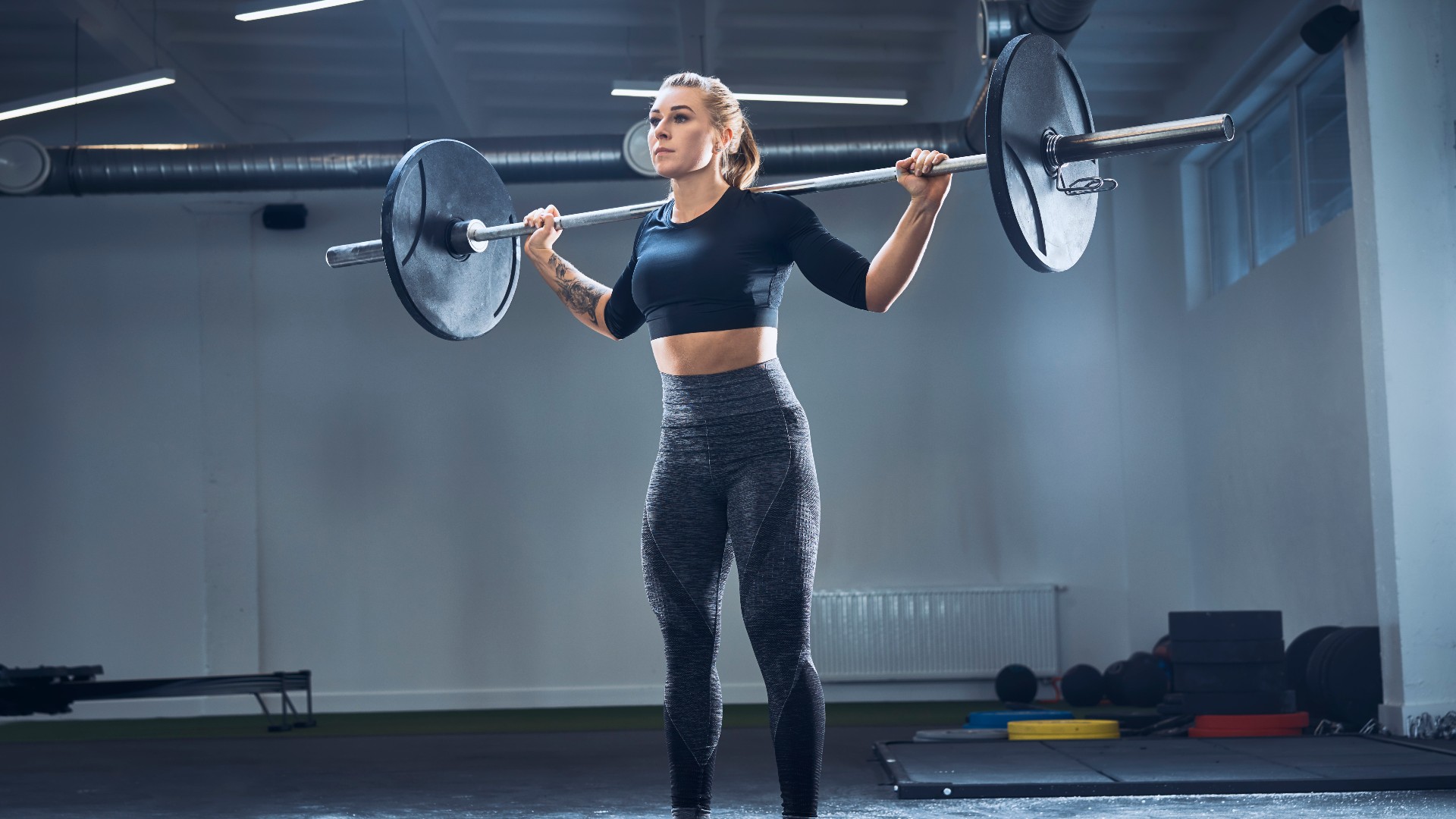Dumbbells vs barbells: what's better for your workout?
We explore the pros and cons of dumbbells vs barbells, whether you're working out at home or in the gym


Walking into the weights room at the gym, you're faced with the dumbbells vs barbells conundrum. Do you pick up a pair of dumbbells? Or do you choose to do your workout with a barbell instead.
If you're training at home, you might also be wondering if you can get a similar workout with a pair of the best adjustable dumbbells. Alternatively, you might be looking to invest in the best workout equipment for home - and the dumbbells vs barbells debate will rear its head again.
Both have their pros and cons and both can come in a variety of different weights. But what’s best for YOU? Find out below. Here, we give you the pros and cons of dumbbells and barbells, to make your decision a little easier.
Dumbbells: the pros
One of the major benefits of dumbbells is that, given they're not attached to each other, you can work the two sides of your body independently of one another.
This can be useful in injury recovery or when you want to target specific muscles, for example to balance-out muscle imbalances. 'Dumbbells can help people work on weaker sides of the body as the stronger sides can’t compensate,' says Mark Fox, Expert PT & Health and Fitness Tutor for The Training Room.
He adds that some may find dumbbells more versatile than barbells, as they can be used one handed or two handed for a range of exercises.
Dumbbells are also quicker to switch between when swapping weights - you simply need to grab the weight you need for your next exercise. In contrast, switching weights with a barbell can involve a fair bit of work in terms of removing and adding different plates.
Start your week with achievable workout ideas, health tips and wellbeing advice in your inbox.

Dumbbells allow you to work both sides of the body independently
Dumbbells: the cons
Although dumbbells have their fair share of positives, there are a few downsides too.
One of the biggest issues can be one of space. Traditional dumbbells come in a range of sizes - the larger the weight, the bigger the dumbbell. Different exercises will require different weights and, of course, as you progress and get stronger you'll want to work with heavier dumbbells. So if you're building a home gym, you may end up with a lot of weights that need to be stored.
One solution is to invest in a set of adjustable dumbbells, which can be loaded up with more weight similar to barbells - although this does make them a bit more fiddly to use.
Mark also adds that working out with dumbbells may be less stable than working out with barbells or fixed resistance machines. Reduced stability means that the max weight you’re able to use may end up being less than if you were to use a barbell.
Barbells: the pros
If you want to work on maximal strength, a barbell could be your best bet. Ben Jackson, owner of gym F45 South Wimbledon, explains: 'You’ll be able to lift more weight using a barbell and therefore get stronger.’
This is ideal if you have strength goals as you can keep adding load to the barbell with plates of different weights and sizes. Just be sure to use a barbell collar to stop any plates from sliding off.
Barbells are also beneficial in that, as you’re using two hands, it is easier to stay stable. For example, when doing lunges with weights, a barbell offers more stability as the weight is balanced across the body. Conversely, lunging with dumbbells can lead to imbalance and potential falls.

Barbells offer more stability than dumbbells
Barbells: the cons
Although a barbell is ideal for heavier lifts, Mark adds that this can often mean people go too heavy, by loading up too much weight on the bar. This can then compromise form and result in injury.
Mark adds: ‘If you have range of movement (flexibility) restrictions, barbells can put you into uncomfortable and even dangerous positions. Plus, as using a barbell tends to be two handed or legged, it can lead to muscle imbalances (caused by a stronger, more dominant side working harder than the other).’
Dumbbells vs barbells: final thoughts
Weighing up all of the above, it's clear to see that both pieces of equipment have their positives as well as their downsides.
Still unsure which to go for? Ben says that, truthfully, neither is better than the other - instead, it really comes down to your personal fitness aims.
‘A better question is, what is your goal?' he says. 'Ask yourself what you’re trying to achieve in the session and therefore what exercises and items of equipment are going to suit you best.’
Ideally you would incorporate both into your workout, using dumbbells to compliment the barbell moves.
Ben explains: ‘If you’re not sure then ask one of the PT’s in your local gym, but if they tell you unequivocally to never touch one or the other, my advice is to say thanks and find someone else.’
Lucy is a freelance journalist specializing in health, fitness and lifestyle. She was previously the Health and Fitness Editor across various women's magazines, including Woman&Home, Woman and Woman’s Own as well as Editor of Feel Good You. She has also previously written for titles including Now, Look, Cosmopolitan, GQ, Red and The Sun.
She lives and breathes all things fitness; working out every morning with a mix of running, weights, boxing and long walks. Lucy is a Level 3 personal trainer and teaches classes at various London studios. Plus, she's pre- and post-natal trained and helps new mums get back into fitness after the birth of their baby. Lucy claims that good sleep, plenty of food and a healthy gut (seriously, it's an obsession) are the key to maintaining energy and exercising efficiently. Saying this, she's partial to many classes of champagne and tequila on the rocks whilst out with her friends.
